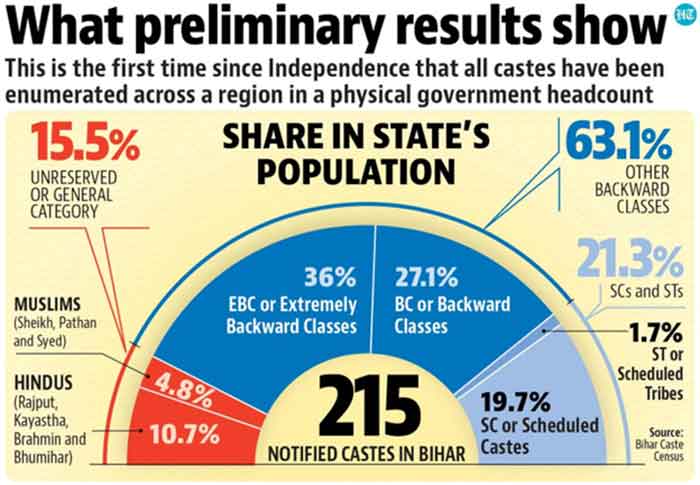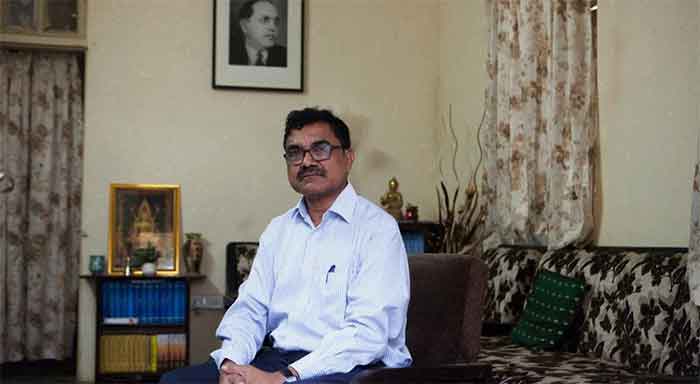
The recent interim order by Patna High Court to put a stay on Caste Survey that the Bihar government is carrying out does tell us about the flawed understanding of the caste question of the Indian Judiciary. The High Court put forth three reasons behind this interim order: First, the caste survey is not a survey but a caste census. Ironically, the court used three dictionaries as a generic source to distinguish between census and survey. Second, because this is a census and not a survey, the state has no authority to conduct the census as it falls under the domain of the union list. Third, the said caste survey might violate the right to privacy because the data will be shared with all political parties, and there are no provisions to protect the collected data. In this article, I argue that this interim order passed by the court continues its detrimental and regressive interpretation of the transformative constitution. The Indian Judiciary, in the post-Mandal period, has become more lethal on the state, where it tries to strengthen the welfare scope of Dalits and OBCs through policies. Various reservation cases in Patna high court were struck down in a way that M R Sharan calls, ‘reproduce, reinterpret, and reject’.
Quantifiable Data, Affirmative Actions, and Judiciary
Quantifiable data to prove specific communities as backward has evolved as the central theme in reservation jurisprudence. The Supreme Court in M Nagaraj & Others vs Union of India & Others, 2006, puts a limit on the state to provide reservations for any class/community. In this regard, the concerned State will have to show in each case the existence of the compelling reasons, namely, backwardness, the inadequacy of representation and overall administrative efficiency, before making provision for reservation. Hence, the supreme court established data as mandatory for the state to draft any policies for reservation.
The empirical or quantifiable data, as a pre-eminent category, again came in a case, Sunil Kumar vs the State of Bihar, earlier last year, when Patna High Court struck down the Extremely Backward Class (EBC) reservation in municipal elections, citing that the state did not comply with triple test provisions by the Supreme Court. The first provision of the triple test is to constitute a committee to collect empirical data to show the political backwardness of the EBC community. The Court struck down the EBC reservation because the state failed to have constituted a committee to collect data.
But here, in the caste survey stay order, the same court stopped the state of Bihar from collecting data. How can the state prove the backwardness of specific communities if it does not conduct a survey or census? Although the caste survey will give data not only on political backwardness but socioeconomic conditions of different castes of the state. A vast sociological and policy-oriented literature suggests that this will help formulate more robust policies to uplift marginalised communities. What do these open contradictions of the Patna high court tell us about the nature of the jurisprudence of the Indian Judiciary?
Ironically, as per the learned judges of the court, the whole thread of argument to show data for the backwardness for providing reservation in the case of the Economically weaker section was ignored or collapsed.
The logical incoherency of the Patna high court can be understood if we analyse the pattern in which it deals with a few earlier cases of reservations.
Reproduce, Reintrepret, and Reject
Patna High Court has had a long history of striking down reservation cases in local elections. In Janardan Paswan vs State of Bihar, 1988, the court argued that the SC/ST reservation for the post of Mukhiya is antithetical to Gandhi’s vision of a village republic and the principle of equality. The court used Gandhi’s idea of gram Swarajya to stop Dalits/Adivasis from becoming Mukhiya. However, the court did not discuss a single line on Ambedkar’s idea!
The ghost of Janardan Paswan was again reiterated in Krishna Mishra vs State of Bihar, 1996. The Patna High Court held the Panchayati Raj Act, 1993, citing that no reservation can be made against solitary seats like the mukhiya of a panchayat. This happened even after Article 243D of the Indian Constitution specified reservations for SCs, STs, and women in local elections. The court reinterprets the meaning of posts and distinguishes it between ‘solitary’ and ‘multiple’, where the provision of reservation applies only to the latter.
This time, in the caste survey case, the court again follows the same pattern. Firstly, it reproduced the meaning of the survey by using the dictionaries as a generic source, then reinterpreted it by invoking the right to privacy and security provisions, and rejected (stay in this case) the whole process of the caste survey by totally ignoring the more extensive logic behind the same.
Regressive or Transformative Visions of Equality Jurisprudence
The higher judiciary remains a citadel of judges from the upper echelons of Hindu stratified society. This makes the judiciary nearly indifferent or hostile towards the concerns of Dalits and OBCs. Just a year ago, Justice Sanjeev Kumar of Patna HC said to an officer Arvind Kumar Bharti, “Bharti ji reservation se noukri me aae the kya” (Bharti ji, did you get the job through reservation?). These types of obiter dictum are not legally binding; however, it shows the judges’ attitudes towards marginalised communities.
What does it tell about the Judiciary that makes such a rigorous interpretation of the transformative constitution? Gautam Bhatia, in his book, The Transformative Constitution, argues that the reservation jurisprudence of the Indian Judiciary largely follows two notions of equality. The first follows the caste-blind approach enshrined in Art. 14 and treats the provisions of Art. 15 and Art. 16 as exceptions. The other notion of equality follows a more transformative vision that sees Art. 14, Art. 15 and Art 16 as a supplement to each other. The second approach evolved in NM Thomas vs the State of Kerala, which upheld the reservation in promotions for SCs/STs in state services of Kerala in 1976.
In striking down the caste survey, the Patna high court seems to follow the first type of jurisprudence, which interprets the constitution regressively. This regressive interpretation of the constitution, especially in matters related to marginalised communities, will further strengthen the opinion that upper-caste judges are biased and incapable of fair and impartial judicial decision-making. In its next hearing of the caste survey case, the Patna high court should engage with second notions of equality/reservation jurisprudence and the vast literature available on caste census.
Nitish Kumar is a PhD Candidate at the Centre for Political Studies, Jawaharlal Nehru University, New Delhi. He is currently working on Indian Judiciary and the Caste Question.














































